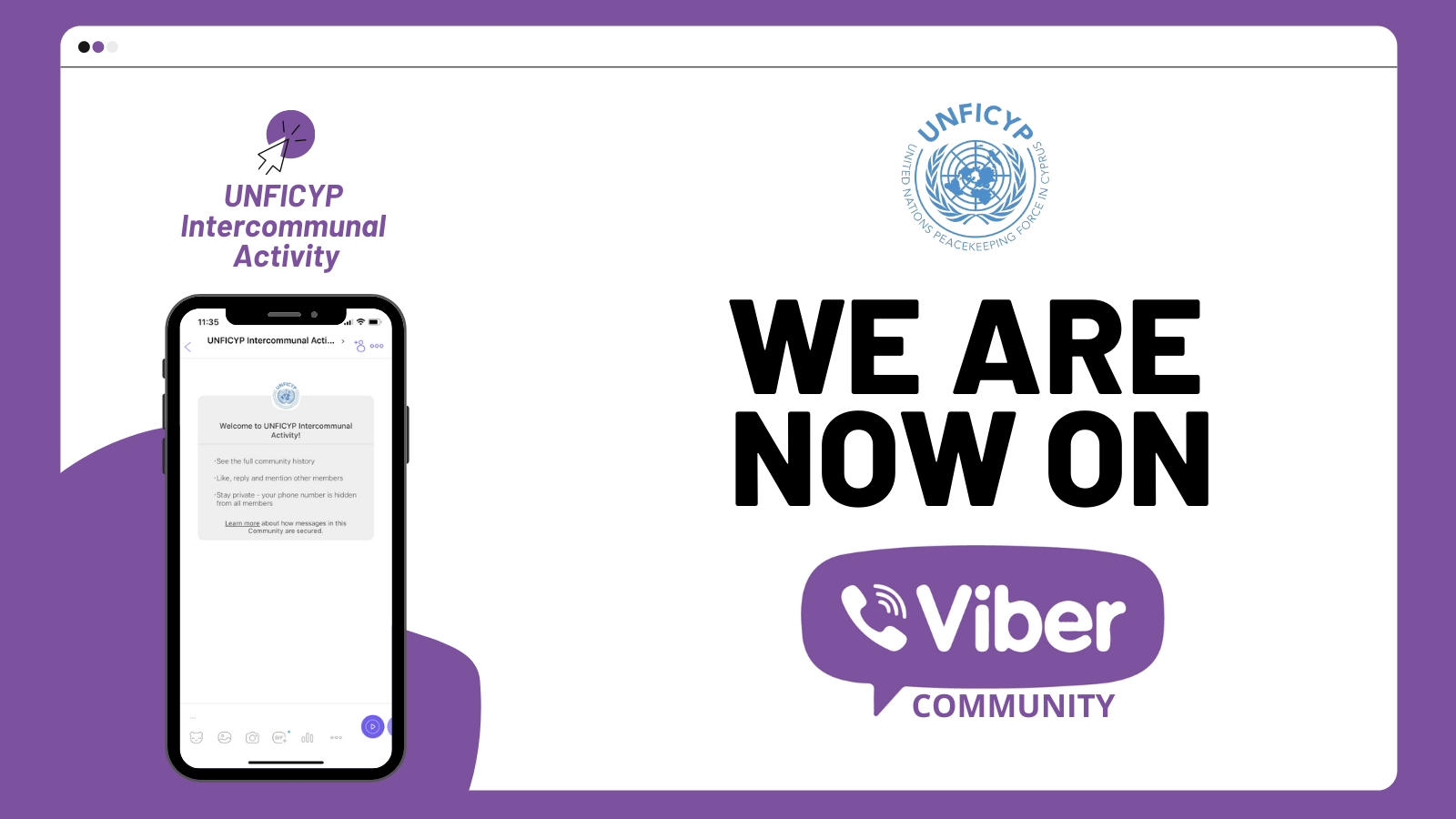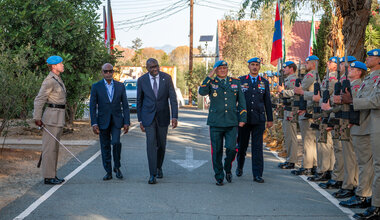The power of communication: enabling sector two to do its job
By Lance Corporal (LCpl) Jemma Couchman
This piece is part of our May campaign highlighting women in peacekeeping, leading up to the International Day of UN Peacekeepers on 29 May.
Cyprus is an island rich in history, fascinating but also tragic. Now that I have been working here in Nicosia for almost two months, I am ever more aware of the importance of the past and of what has happened here. This is because, as one of the signallers in Sector 2, it is my job to pick-up, monitor, and pass on information about what is happening in our part of the Buffer Zone, activities that are often shaped by different memories and understandings of the past, which make the present before my very eyes.
My days are long. I work alternate twelve-hour shifts in our Tactical Operations Centre (TOC), with one ear pinned to the radio and both eyes darting between multiple screens, watching our many CCTV-feeds. I have to stay alert constantly, keep a clear and accurate signals log and I need to watch everything unfolding on the screens in front of me.
It is a role with a lot of responsibility. As well as my monitoring duties, the patrols require clear direction to be passed down to them in a calm, collected manner. When we were dealing with a recent fire, for example, and all the risks that entailed, I was able to ensure that heads were kept cool, that no unnecessary risks were taken, and that our efforts to bring the fire engine to the site went smoothly.
As a British soldier, I am proud to keep the peace with the UN. I actually transferred into my current unit, 5 FUSILIERS, so that I could come on this tour. My brother made me immensely proud by serving with the British Army in Afghanistan, and part of me always wanted to follow his example of serving overseas. Peacekeeping, by bringing people from around the world together, united in a common cause, helps to build international understanding and cooperation. I think that the wealth and variety of experience that the British Army possesses means that we can offer a lot, but I also believe that we can learn a lot too.
My experience on Cyprus thus far has of course not escaped the impact of COVID-19. Our lives in camp have had to conform to the need to reduce interpersonal contact as much as possible. We have also remained in barracks and only ventured out for operational reasons. This has helped to bring what is a mixed battlegroup closely together. Most of us are actually British Army Reservists, meaning that we have a civilian job that we have put on hold for the duration of the tour, and come from a great diversity of backgrounds. One of the things I’ve enjoyed most is the chance to get to know new people, and to help forge a hard-working, but positive team.
I nonetheless look forward to venturing out and to seeing more of this truly beautiful island. With my eyes fixed on the Buffer Zone, I see the scars of conflict every day. But I hope that the work I am doing here, alongside all other peacekeepers on Cyprus, will one day contribute to building the kind of carefree peace that many tourists from my country come to Cyprus every year to enjoy, only a few miles away from a conflict-zone frozen in time.
 UN
UN United Nations Peacekeeping
United Nations Peacekeeping






